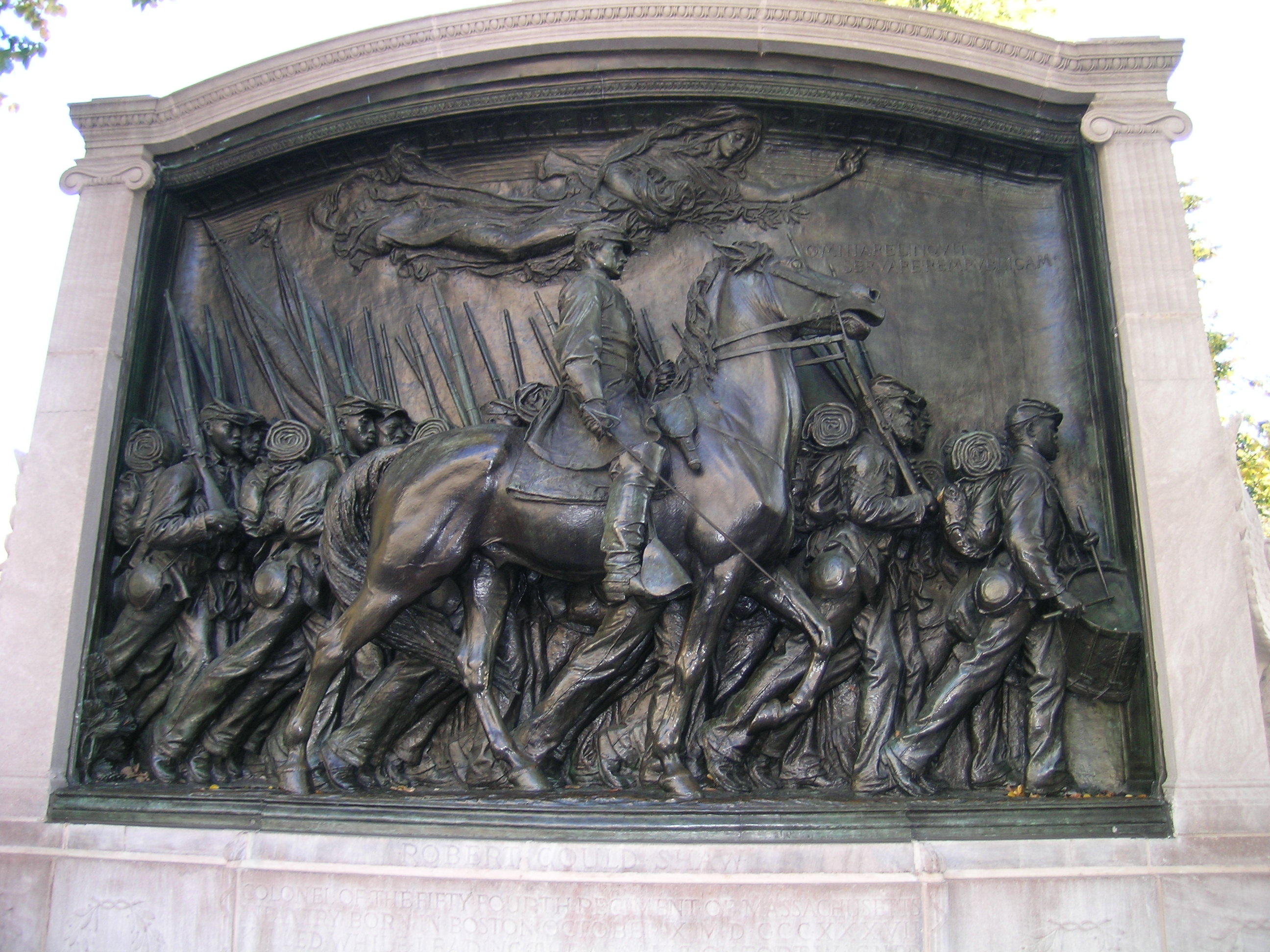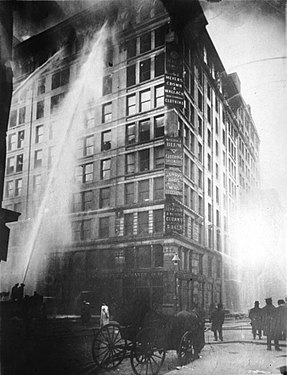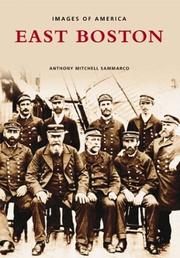 |
| The endless cornfields of southern Illinois. |
Something that I learned in the last ten days: Much of Illinois is populated by corn. Something else: The quality of rest areas varies from state to state.
Between August 11th and 18th I put 3,000 miles on my car -- and flattened countless insects on my windshield, front grill and side mirrors. I visited the cities of Buffalo, South Bend, Chicago, Memphis, Knoxville and Asheville on a road trip that was fun, interesting and exhausting.
I have friends in Chicago and decided in the spring that I would drive out to see them this summer. I also decided that I didn't want to make the entire trip in one day, as I had with a friend, eight years earlier. Finally, I wanted to take a different route home to see some places I hadn't seen before. After a while I roughed out the route in my head, though I didn't make preparations until the day before leaving -- and only for the first half of the trip.
I-90 begins in East Boston and it would be my home for the first few days. The 450 miles from here to Buffalo is fairly scenic the entire way, with trees and rolling hills. It took me seven hours to complete that first leg, including stops at rest areas. Generally, I chose places to stay based on their proximity to places I wanted to eat. In Buffalo I wanted to visit a Belgian-style pub called
Blue Monk, in the vibrant Elmwood Avenue section of the city. There was a fantastic beer selection and I had a charcuterie plate (cured meats) and some poutine, a dish of French Canadian influence that I was introduced to years ago in Maine. Dinner was followed by a cup of "sipping chocolate" at
Chow Chocolat. I spent the night at a nearby bed and breakfast called
Beau Fleuve, which was delightful.
 |
| A rest area off I-90 in Ohio. |
After a light breakfast and good conversation with other guests, I went to visit an old church that was converted a few years ago into the headquarters of Righteous Babe Records, the label of Ani DiFranco, a singer-songwriter who is a favorite of mine. I just walked in and an employee was nice enough to show me the offices, performance space and art gallery that are now part of the building. From there I was off and back on I-90. The rest area that I stopped at in Ohio is big, bright, clean and modern -- possibly the nicest I've ever seen. I fueled up on Starbucks espresso and continued westward. As the road passes through Cleveland, the number of cars and exits increases and the route twists and turns. Driving through big cities is where things get a little anxious for a driver in new surroundings, but soon I was beyond the suburbs and the road straightens and thins out. There had been some small farms and vineyards in upstate New York, but west of Cleveland is where the agriculture really begins: miles of cornfields on each side. Ahead , in the distance, a farmhouse or a barn and a few trees and, once beyond that, more corn.
This continues to a lesser degree in Indiana, where the road is noticeably less well-kept and the rest areas are smaller and less modern. After about seven hours and 460 miles I was in South Bend, home of Notre Dame. I got a bit lost on local streets, but eventually found the
Jameson Inn, which had been right next to my exit all along. This was my most mediocre lodging as well as my most mediocre dining experience. A friend who graduated from ND suggested I eat at the
Fiddler's Hearth, so I made my way over there. The Irish pub was crowded and loud. I stood by the doorway for quite a while as the waitstaff walked past me, and eventually I had to approach one of them. I asked to sit outside where it was quieter. The bangers and mash that I ordered was OK.
 |
| Wind across the flags at Chicago's Navy Pier. |
On Saturday morning I made the 90 minute drive into Chicago. Though I had been close the night before, my hosts in the Windy City pointed out that traffic during rush hour the night before would have been terrible, so pulling in mid-morning on the weekend was the way to go. My friends live in the northern suburb of Northbrook, which is nice and quiet -- though the straightness of every road out there was freaking me out a bit. That night we went into the city to meet another friend at
Cafe Iberico, a downtown tapas bar. The food and sangria were excellent, and afterwards we walked around, seeing the only structures not burned down by the famous 1871 fire. On Sunday my friends took their kids and we went to the Navy Pier, a redeveloped pedestrian mall with eateries and attractions on Lake Michigan. The wind was blowing furiously, but we had a nice afternoon, including lunch at the
Billy Goat Tavern -- famous for the "Cheeseburger, cheeseburger" SNL skit. We also visited a piece of public art officially called
Cloud Gate, but known to locals as The Bean. It's a good spot to take photos.
 |
| Sunset over the Mississippi River in Memphis. |
From Chicago I drove the length of Illinois -- and it is really just cornfields for hours, with some soybeans sprinkled in -- and slipped into Missouri and then Arkansas for a bit before arriving in Memphis, at the west end of Tennessee. This was the most difficult drive, not only because it was nearly ten hours and 550 miles, but because the road was generally straight and the scenery was unchanging for much of the trip. The
Holiday Inn in Memphis, however, was the nicest room -- more generic than the two non-chain places I stayed, but it was a roomy suite. The hotel is in a quiet neighborhood directly across the street from the University of Memphis. The place I wanted to visit for dinner happened to be closed on Monday, but in Memphis there are many options for barbecue -- and that is why I was in that city. I went to Central BBQ, and while the food (ribs and pulled pork) was good, it wasn't amazing and the staff was a bit indifferent. After eating, I went down to the shoreline of the Mississippi River and watched the sun set from a riverside park area.
On my way out of town I decided to stop by Graceland. I confess that I have never been much of an Elvis fan, but it happened that I was in Memphis on the anniversary of his death, so I thought I'd take a look. The expected big crowd wasn't there -- at least not at 9 a.m. A sign said it was $10 to park and I wasn't about to pay that, so I took a self-portrait by the big sign off the road, and as I was doing so a passerby volunteered to take my photo, which was even better. I then hopped on I-40 east. I wasn't sure if I was going all the way to Asheville, NC -- a small city in the Blue Ridge Mountains that has a reputation as a hotbed of art and culture -- or if I would stop at Knoxville, the largest city in eastern Tennessee. I decided not to push myself and to opt for Knoxville, and it was an excellent decision.
 |
| Market Square in Knoxville. |
While western Tennessee retains the character of the Mississippi River valley, the eastern part of the state is in the Appalachians. The foothills and then the mountains roll away from the road in all directions. After six hours and 400 miles I pulled into downtown Knoxville -- for the first time showing up in a city without a place to stay. I quickly found the local visitors' center, which not only provided friendly information, but had a little cafe so I could sit, have a beverage and figure out a game plan. I quickly found that the
Oliver Hotel, a quirky, newly renovated place, was right next to Market Square, the pedestrian mall that was the center of the reborn Knoxville. I booked a room and got cleaned up. I had dinner at the
Downtown Grill and Brewery, and I spent some time wandering around the city center.
One of my favorite novels, Cormac McCarthy's
Suttree, is set in Knoxville, which was the main reason I wanted to stop there. I walked over the Gay Street Bridge, which crosses the Tennessee River, to look down at the spot from which the body of a suicide is pulled from the river in the book's opening pages and, further down, to the presumed area where the title character, Cornelius Suttree, docks his houseboat. Afterwards, I grabbed an excellent espresso at
Coffee and Chocolate while chatting with the friendly barista. Over in Market Square there was a jazz trio playing on a stage at one end and a street musician playing cello at the other. One of the most inspiring sights of my entire trip was a child, perhaps three years old, playing in a small public fountain in the middle of the square. She approached the water, which came up from ground level and made a small but graceful arc, with curiosity and excitement each time, put her hands or head or torso into the spray, and then laughed with pure joy as she toddled back to her mother, who was right behind her. This went on for ten minutes and the girl never tired or lost her enthusiasm.
 |
| Public art in Asheville. |
The next day brought the most beautiful stretch of driving, as I wound my way through the Great Smoky Mountains into North Carolina on I-40. After about 120 miles and two hours -- which was, by that part of my journey, a quick side trip -- I was in Asheville, a city of 80,000 that has recently been voted one of the best places to live in the US and one of the world's must-see destinations. In recent years it has developed a reputation as a center of Appalachian culture, music and art. I walked around the city's downtown and had lunch at the highly regarded
Tupelo Honey Cafe. The made-from-scratch black bean burger was very good, and the complimentary biscuit, with jam, was incredibly delicious.
I wanted to see more of Asheville, but I also needed to think about getting back to Boston. I had 15 hours separating me from home, and I didn't want to do that all in one day, so I got back on the road with the goal of getting as far north as I could before dark, thereby making the next day's final journey as reasonable as possible. I took I-26 to I-81 north and made it to Harrisonburg, Virginia, by twilight, knocking about five hours off the rest of my trip. There was a Holiday Inn at the end of the off-ramp and later I found a small sandwich place to hold me over.
At 6 a.m. the next morning, AC/DC woke me up. The previous guest in my room had apparently set the alarm clock using the radio feature. My first reaction was confusion -- What is happening right now? -- which was followed by annoyance. When the radio began blaring again in five minutes I realized I had only hit the snooze button the first time. Now I veered toward anger, jumping up and pulling the plug out of the wall. Later, I growled at the hotel staff, but getting an early start on the long drive home was actually a good idea. I followed I-81 through the rest of Virginia, into West Virginia, Maryland and Pennsylvania. In Scranton I switched to I-84 and continued on through New York State and Connecticut, and then in Massachusetts I picked up the Mass Pike. The final leg was, with stops, more than 11 hours, but driving home adds extra motivation to keep going.
It's a big country out there, and I've still only seen a small slice of it. The distances and time spent on the road might seem overwhelming, but driving can be enjoyable as well. When hitting the road solo there is plenty of time for reflection; plus, NPR was a constant companion everywhere I went. Also, it is amazing how much religious radio there is in this country. I listened to it for a stretch here and there, and I have to report that some of it is completely insane. Another thing you'll find outside New England: large amounts of shredded tire on the road shoulders.
We can sometimes fall into cynicism and worse when confronted by the world's problems -- or even our own little struggles to survive and find satisfaction in this sometimes complex, often frustrating world. However, we are surrounded by great beauty, and if we fail to seek it out and embrace it, we alone are to blame. I think of that child in the fountain in Knoxville and how, after seeking reassurance from her mom, she walked back toward the cool and refreshing arc of water, each time allowing herself to be surprised, excited and filled with joy at something so wonderful, yet so simple.




























